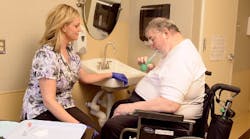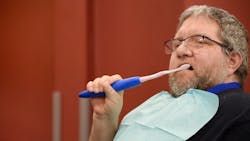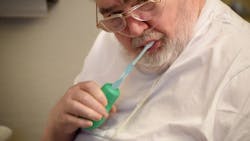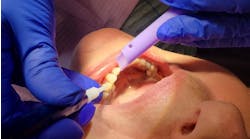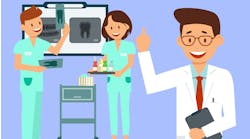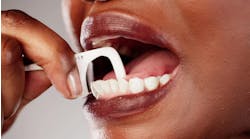Independence is one of the earliest impulses. I recall my 18-month-old granddaughter demanding, “I do it!" Independence is also one of the deepest cravings of older adults, as age often robs them of their autonomy.
We take so many tasks, habits, and personal desires for granted until we are faced with a situation preventing us from following our routines. Brushing is a very personal habit that many individuals would rather skip than ask someone for assistance. Skipping it, to be sure, would be detrimental to our physical health if we kept it up for any length of time.
As the director of oral health and community outreach for a community for individuals with intellectual and developmental disabilities, I have learned that independence is a daily test and trophy. Brushing is a vital part of infection control for individuals with many health compromises. They take ownership of caring for themselves and that includes brushing their own teeth. Because so many of my people have small motor difficulties and limited mobility ranges, I’m always in search of new concepts to make brushing easier, more fun, and less challenging.
On the exhibit floor at last year’s RDH Under One Roof meeting, I saw the very colorful prototypes of the GripEazy Expand and Extend toothbrush aids. I tried the toothbrush expander in my hand, and the faces of the people it could help started flashing in my brain. The narrow extender had the same effect on me. These two pieces of foamy material could change the world for so many individuals—people who have cerebral palsy, arthritis, dementia, small motor issues, traumatic brain injuries, shoulder injuries . . . the list kept growing!
The Expand is shaped like an avocado and the Extend like a long churro. Both products are made of a lightweight but durable foam that makes them easy to wash and keep clean.
Besides my role with the special needs individuals, I created an oral health initiative for older adults to educate them on the oral-systemic connection. We try to reconnect them with their dentists or find them affordable providers. Older adults and those with intellectual and developmental disabilities are parallel groups with similar dental issues: dry mouth, rampant decay, periodontal issues, and fragile physical health. Both have physical barriers making the quality of their brushing questionable when they remember to brush.
The population is aging, with more than 10,000 people turning 65 each day, and nearly 20% of the population has some level of disability, according to the Department of Health and Human Services and the Census Bureau. (1,2) People who require special assistance with their daily tasks are more common than ever before. Their dental needs are increased, and we need to adjust our home care products and suggestions to accommodate them. As a dental hygienist, I am one of the many caregivers who come in contact with the residents of these special homes. We celebrate achievements, no matter how small they may seem. Small achievements build into independence and monumental achievements.
As hygienists, we each have a toolbox that we carry through our clinical settings that always has room for new analogies, innovative products, or an off-label use for something familiar. Each conference or networking event we attend is an opportunity to check out someone else’s “toolbox.” The success of an item depends on how easily a patient can adopt it and accomplish the task independently or more effectively. What is your favorite tool in your toolbox? Will it make your patient more independent?
Originally posted in 2018; updated July 2021
References
1. US Department of Health and Human Services Digital Communications Division. Aging. US Department of Health and Human Services website. https://www.hhs.gov/aging/index.html. Accessed August 6, 2012.
2. Nearly 1 in 5 people have a disability in the US, Census Bureau reports [news release]. Washington, DC: US Census Bureau; July 25, 2012. https://www.census.gov/newsroom/releases/archives/miscellaneous/cb12-134.html. Accessed August 6, 2018.
Carol Roszel, RDH, BSDH, enjoyed over 25 years as a clinical hygienist before creating Illinois's first oral health initiative for older adults at White Crane Wellness Center in Chicago. She is presently the director of oral health and community outreach for Little City Foundation in Illinois. She can be reached at [email protected].